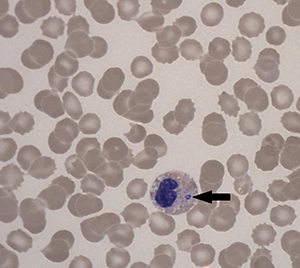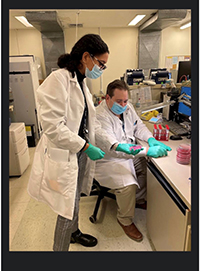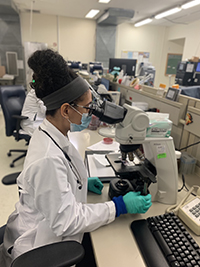Fellows receive practical training in the diagnostic laboratories including bacteriology, mycology, virology, serology and parasitology. They receive training in the standard pharmacokinetics of antimicrobials, antimicrobial susceptibility testing, determination of antibiotic concentrations in serum and other body fluids and techniques for appropriate collection and processing of specimens relevant to infectious diseases. A formal rotation through the Microbiology Laboratory is mandatory during the first year of training. A weekly review session on Clinical Pathology occurs throughout the Fellowship Training.
MICROBIOLOGY
A hands-on orientation to the clinical microbiology laboratory takes place each July for first-year fellows at Stony Brook University Hospital. Fellows participate with the laboratory staff in reviewing basic microbiological techniques and specimens from patients routinely seen in the hospital. This microbiology orientation has the goal for the fellow to gain knowledge in the areas of bacterial and fungal cultures, molecular diagnostic assays, serological tests for common diseases, Lyme lab, virology including blood-borne pathogens (HIV, HCV, HBV, etc), mycobacterial cultures, tick-borne diseases lab such as smears for Babesia infections, parasitology techniques, among others. Fellows are expected to incorporate these principles of microbiology during their case presentations (when off inpatient service).

Anaplasmosis: Microscopic examination of peripheral blood smear showing characteristic intracytoplasmic aggregates in neutrophils called morulae. (Credit: Yamil Michelen, MD. Second year ID Fellow 2020).

